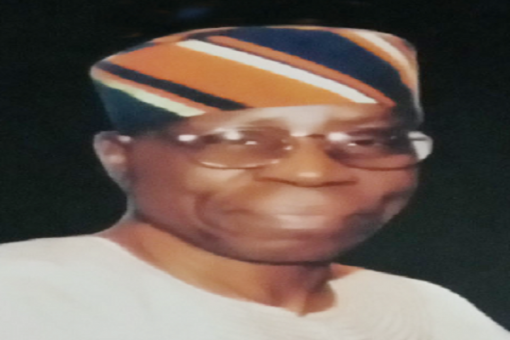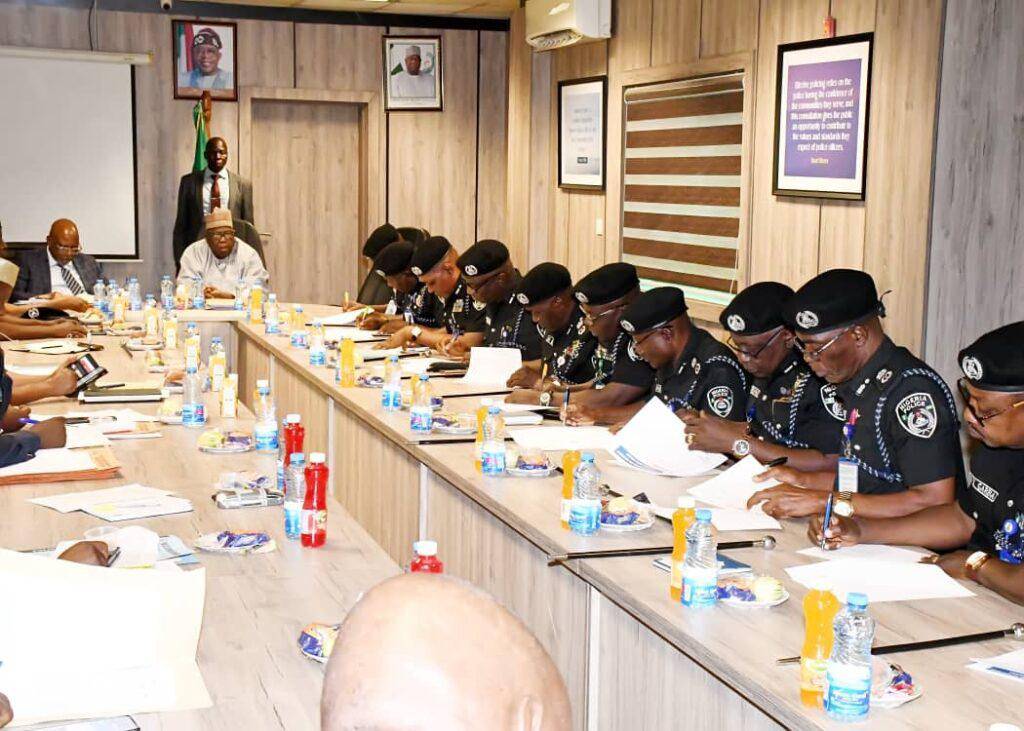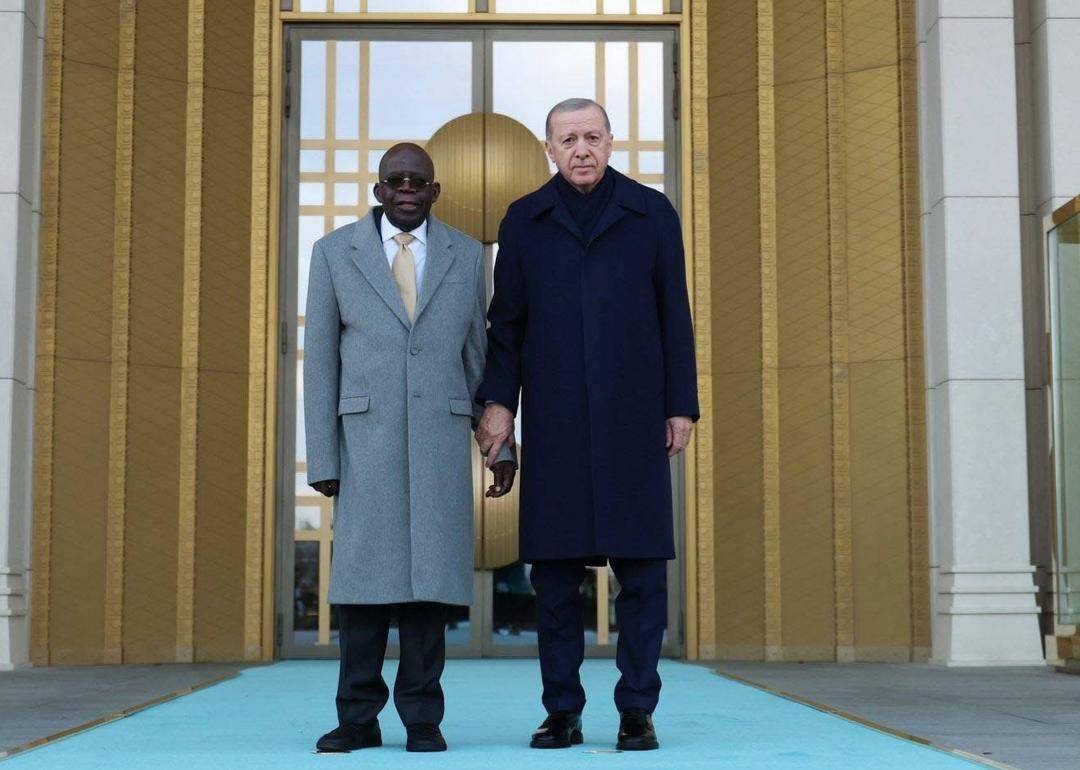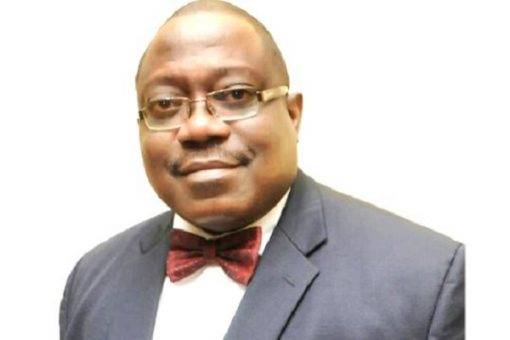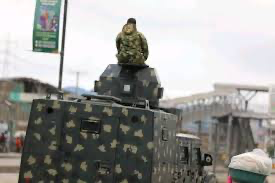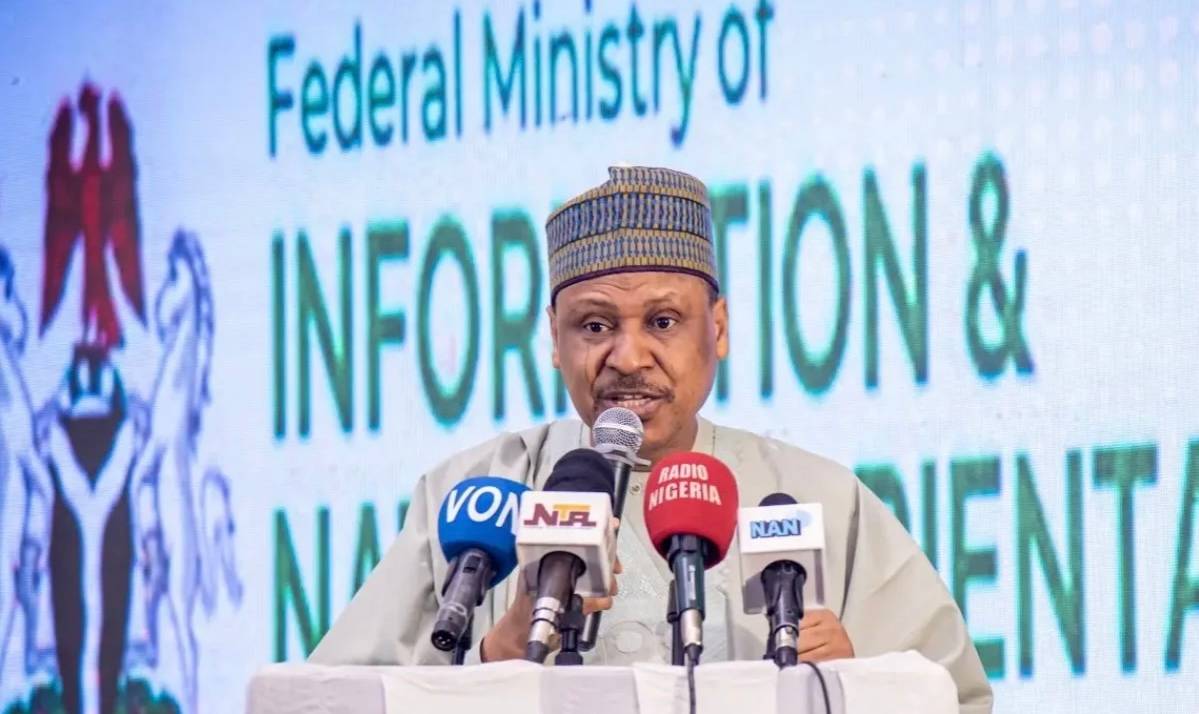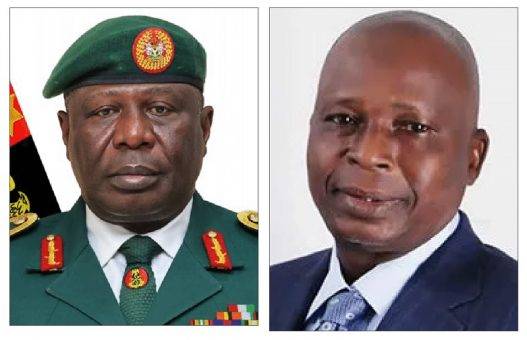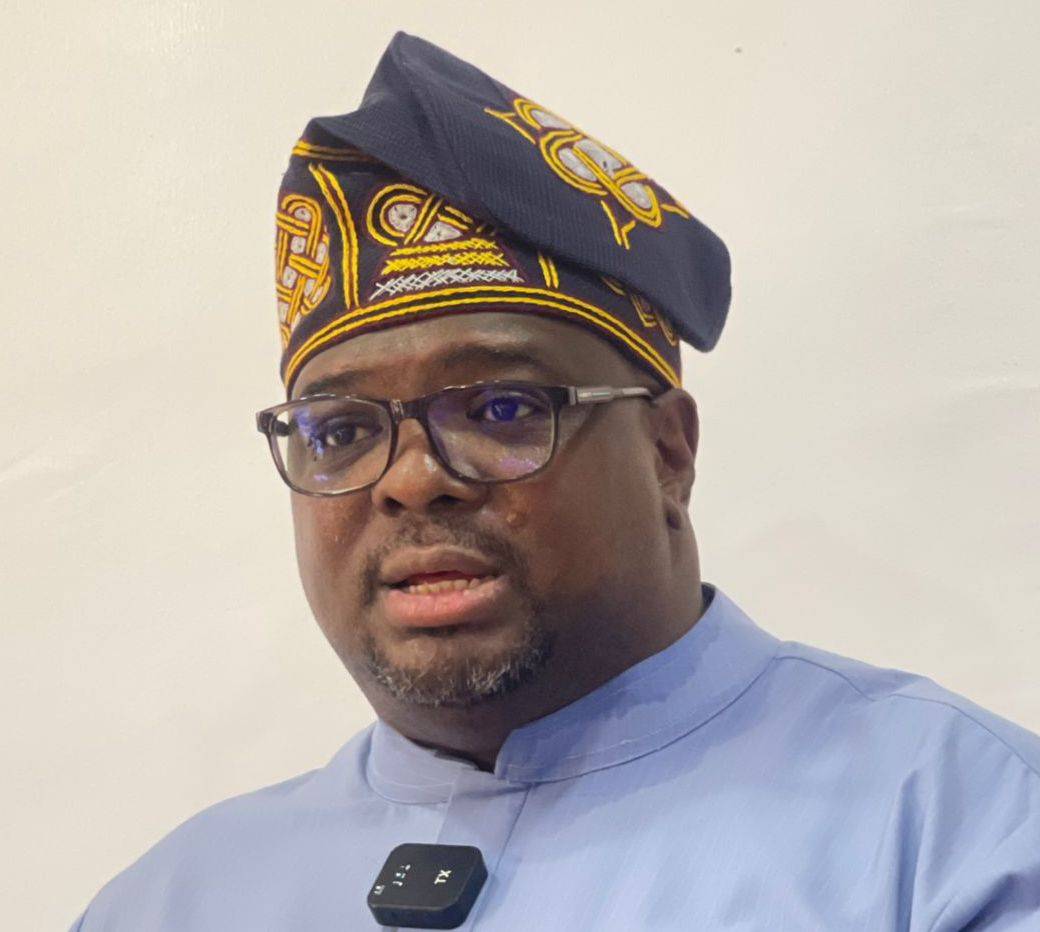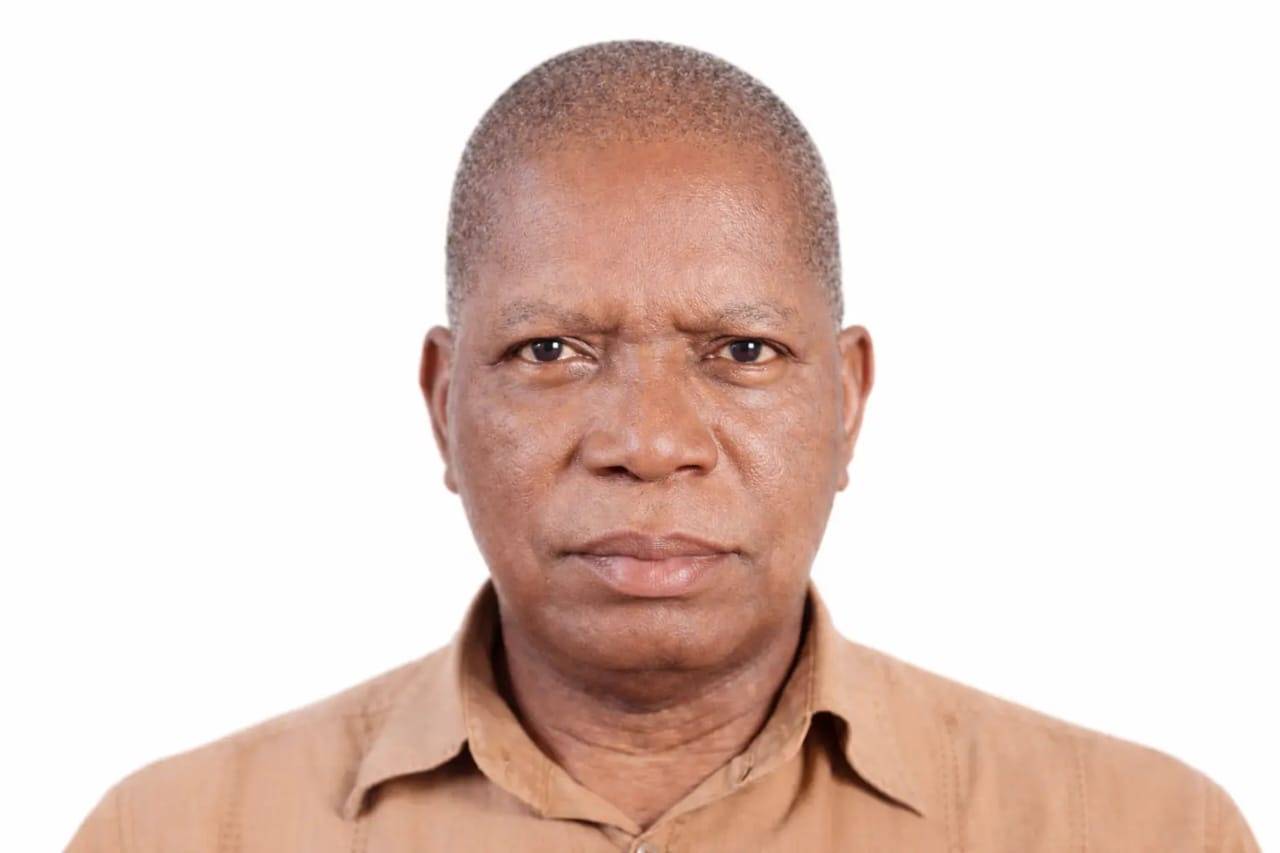By Tatalo Aremu
A Convergence of Consequences
There are some big elephants in the sitting room. And when elephants converge before a magnificent castle, it is usually a sign of unusual developments. Elephants are known to have a long memory. But with the humongous mass of their brains, nothing less must be expected except by foolhardy and feckless humanity .They are usually placid and easygoing without the ferocious temper of a rhinoceros or the tempestuous rage of a hippopotamus. But that is until they sense danger or the perpetrator of some old infractions in the neighborhood. That is when all hell is let loose with the infuriated pachyderms pulling out and pulling up everything in sight or out of sight in elemental rage. The jungle can no longer contain the plaintiff and the defendant. This is when the hunter becomes the hunted.
Like the ghost of Banquo at state dinner, Bola Ige, a master poet, intellectual pugilist and political prizefighter, seems to be whispering from beyond: Tell my perjurers and assailants that I did nothing unworthy of poetry and philosophy! That is only two of the three Ps, leaving out perhaps the most important P, which is punitive politics in a postcolonial penal colony. Ige himself would be the first to let you know upfront that he was not a saint and that politics in a fractious, multi-ethnic and multi-faith polity seething with primordial envy and animosities is not for saints. Even then, it beggars belief that a nation’s chief law officer could be slain like that in his bedroom without the assailants caring a hoot about the consequences. Here was a man who could not hurt a fly, despite all appearances to the contrary. He was armed only with his abrasive tongue and nettling pen and it was with these that he whipped political fools and other chancers into line.
But Abuja is not the most benign habitat for literary generals. Before Ige, its most famous poet who was a warrior-general was militarily liquidated by his colleagues. Sensing danger, many of us who felt close enough railed from a distance that leaving the comfort of his ethnic fortress in a towering huff for the killing fields of Abuja was a bridge too far. But we were sidelined and testily ignored. Caesar must cross The Rubicon. Ige had privately told some of our mutual friends that he could not understand how a teacher of Literature could have the temerity to be telling him what to do in politics. Like Cicero, his Roman progenitor, who had his tongue literally pulled out, it was our own Cicero’s proud and noble Ijesa heart that was shot to pieces.
But it is well. Almost a quarter of a century after his dastardly assassination in his bedroom, James Ajibola Idowu Ige seems to be having the last laugh over his tormentors. First, and in a remarkable piece of finely honed historical denouement, the late Cicero of Esa Oke appears to be presiding over the funeral rites of the group he belonged to and of which he was the undisputed intellectual and political master of the game. It is a remarkable funeral pyre, an enchanting spiral of decline, dissolution and death enacted as a consuming public spectacle. Judging from the bits and tidbits of information being released by his family, his close associates and acolytes and the cagey pushback this has elicited, it is becoming obvious that Ige’s elimination was hatched and executed from the innermost sanctuary of state liquidation. But we must warn that nothing last forever. The Nigerian postcolonial state is not an organic formation but a brittle ensemble of deadly intrigues and Byzantine conspiracies against the people of Nigeria. Judging from the deadpan and poker-faced revelations of recent weeks, it is just possible that countervailing elements from a rival power formation now have access to classified information which they may not be averse to insinuating into the public domain if only to put some Nigerian tin gods permanently out of political contention. Beyond the public purview, it is just possible that another deadly power struggle for the soul of Nigeria has commenced and it is going to be nasty and messy.
It is only in the Third World that people act without expecting repercussions for their actions. Sometimes, the sheer wickedness of humanity is ascribed to God himself. But as Dele Giwa, the martyred Nigerian superstar journalist, once hauntingly put it, nobody mocks God and the rewards of villainy are often handed out in life. In the fullness of time, karmic retribution often appears strange and unreal if not totally bewildering to the onlooker. This is the beauty of historical development which on the surface appears to obey only its own law and inner logic. The public excoriations and private torments our former military and civilian dictators are currently experiencing may appear to be against the run of play, but they are the logical consequences of past infractions against a nation and its people that they owe so much.
The impunity of lawlessness is often a reflection of lawlessness as the organizing principle of a society in the trauma of transition. No one, however highly placed, should exploit the void to conduct themselves with abominable lawlessness. Order, or some semblance, will eventually return to question disorder. In postcolonial societies transiting to modernity, the unstructured and ungoverned nature of things makes impunity to wear the garb of divine immunity. But that is only before hitherto unseen and unknown countervailing forces rise to the occasion, forcing a resolution of the crisis or a tense deadlock as the case may be. It is known as the return of the repressed.
This much is evident in the other elephants that have taken up residence in Nigeria’s palatial sitting room in recent times. Namely, the protracted legal tussle over the Mambilla Hydro-electric Project which has exposed the soft underbelly of official impunity in Nigeria in all its cancerous possibilities. There is also the statement said to have been issued on behalf of Sultan Sa’ad Abubakar asking the South-West populace to accept the reality of Sharia rule over their considerable Muslim segments. Yoruba self-determination groups have been implacable in their umbrage. These are dangerous developments indeed that tug at the heart of the National Question and could lead to a recrudescence of ethnic, religious and geo-economic tensions in the nation. Both Obasanjo and Buhari have already had their day in the court of International Arbitration. It was a sad day for Nigeria.
If the two gentlemen were expecting national commendation for their yeoman’s labour in Paris, the gale of rebuff and recrimination should serve as an indication of the seething national misgiving about their conduct in office. As for the Sultan and the insidious charter of domination however diplomatically coded, the furious rejection of his suggestion even by traditional die-hard Muslim adherents in Yorubaland should inform him that the days of extending feudal hegemony under the guise of some pernicious narrative of superior compliance are over. In a multi-ethnic nation, the rising tide of ethnic nationalism appears to trump religious overlordship of some dubious vintage. The instant uproar in the west ought to serve as a cautionary reminder. Allow me to conduct my Islamic religion as I deem fit, is a joyous Yoruba refrain.
Fundamentalist adherents of an Islamic credo that has nothing but debilitating poverty and political anomie to show may scoff at this, but it is this eccentric and idiosyncratic syncretism that is the strength of Yoruba culture which has allowed the people to survive ages and epochs of adversity from invading hordes. Nigeria is in a state of tense and precarious equilibrium. We must refrain from doing anything that could tip the balance into anarchy and chaos which are the usual precursors of the collapse of regular politics.
In advanced societies, the collapse of regular politics can have adverse and ruinous consequences for the ruling classes. This is why Donald Trump is currently kicking their butt about in America with aplomb and cruel relish. Governance of fickle humanity requires constant vigilance and continuous inventiveness. In what feels like an outstanding feat of magical realism, Trump has just revoked the security pass of his predecessor. Once the ruling classes allow the initiative to slip either through carelessness or a stalling of vision, it opens the door to either demented demagogues of the right or deluded messianic crackpots from the left, depending on the balance of forces. Donald Trump is an exemplary product of the regnant contradictions of contemporary American society. He does not possess the intellectual wherewithal or the political temperament and emotional intelligence to make a dent on America’s social, economic and political problems. But he will so muddy the waters that resetting America will be a herculean task for his successors until one of them is able to rediscover the magic that made America an exceptional country.
In less advanced societies with weak structures and weaker institutions, the precipitate collapse of regular politics can have more catastrophic consequences for nations and their traditional ruling classes. Twice in Nigeria in January 1966 and December 1983, it led to state collapse with the first one accompanied by virtual nation-collapse culminating in a thirty-month civil war. In post-independence Africa, the collapse of regular politics has led to civil wars in Congo, Congo Brazzaville, Algeria, Somalia, Uganda, Rwanda, Burundi, Liberia, Sierra-Leone, Cote D’Ivoire, Guinea Bissau and Libya.
It is within this broad context that one must express grave concern and particular disappointment about the outcome of a recent gathering of political notables and their freshly recruited satraps ostensibly to feel the pulse of the nation and to offer new insights about how to take the country to greater heights. On both counts, it was a dismal failure. It was a celebration of trivia and platitudes about who did what to whom in the run up to the last presidential election and its aftermath. If this is a peep into the embryonic formation of what is shaping up as opposition force in the next presidential election, the ruling party might as well go to sleep with a Do Not Disturb sign screwed to the door.
Those who are principally fixated on the dreary outcome of an electoral process without focusing attention on the shambolic state of opposition forces will have plenty of tears to shed when they come to grief once again. By then, those who rely on traditional disruption of the electoral process in its concluding phase would have become so enervated and exhausted by their errant exertions that they would have become a spent political force with the status of extinct volcanoes. By the prevailing logic of a fractious, multi-ethnic and multi-religious nation, power can only be forcibly wrested and will not be shared out except by stringent and pacted elite negotiations.
What the gathering left unsaid is more eloquent than what it actually says. The unstated fact is that they have been rendered hors de combat even before the commencement of battle. In Literary Theory, this is known as “the effectivity of the absent cause”. In this case, the absent cause which the political notables could not bring themselves to reflect on is the complete homogenization of the Nigerian ruling class which has made it impossible for the so called opposition to come up with an authentic alternative vision of the country since nothing can distinguish or set them apart from the ruling faction apart from their infantile tiffs. This unification of elite consciousness is a direct result of politics without principles and party formation without coherent ideology. If this is where we are almost a quarter of a century after his martyrdom, Bola Ige will be frantic in his grave.
Culled from The Nation


